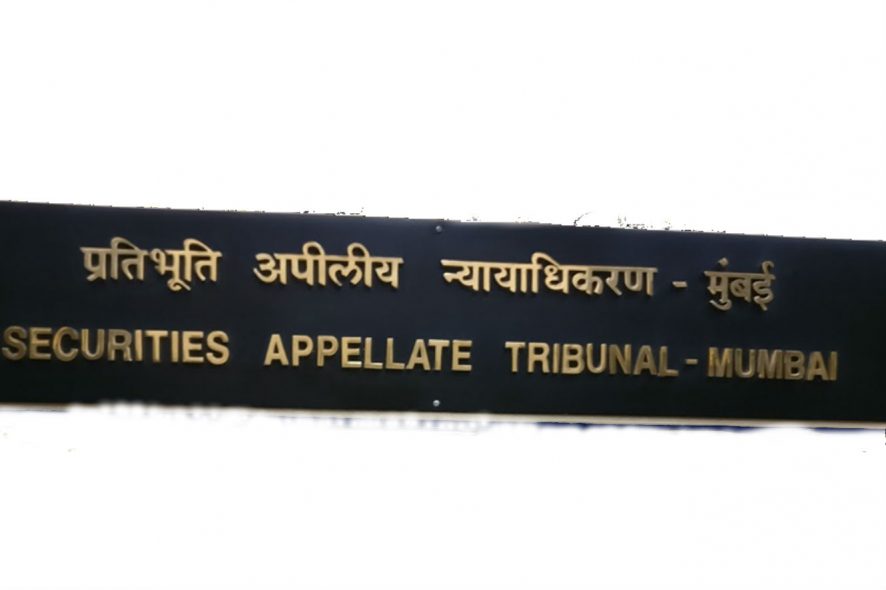Securities Appellate Tribunal (SAT): A Bench of Justice Tarun Agarwala SEBI(Presiding Officer) and M.T. Joshi (Judicial Member) allowed a few appeals and dismissed the others while hearing a group of appeals and termed the order cryptic, in so far as it exonerated the preferential allottees, exit providers and the LTP contributors from the charge of Section 12A(a),(b) and (c) of the SEBI Act read with Regulation 3 and 4 PFUTP Regulations on the ground that they had no role to play in the price manipulation.
The present appeal was against the order passed by the SEBI for restraining the appellants and the six entities from accessing the securities market for a period of five years and further freezing the shares and mutual funds units lying in their Demat accounts for the same period. The group of appeal was divided into two categories. The entities in the first set of appeals being, appeals nos. 102, 44, 85, 235, 246, 247, 571, 572, 573, 575 and 581 of 2020 and were called the ‘appellants’. The entities in the second set of appeals being, appeals nos. 178, 179, 180 and 181 were called ‘six entities’. Noticing the sharp rise in the trading volume and price in the scrip of the Company, SEBI conducted an investigation in the trading in the scrip of the Company and, based on the investigation, SEBI passed an ex parte ad interim order dated May 8, 2015, against 178 entities. The 178 entities were categorised as:- (i) The Company; (ii) The directors and promoters of the Company; (iii) The promoter related entities; (iv) The preferential allottees; (v) The exit providers; (vi) The LTP contributors.
It was revealed that the entire modus operandi was a scheme devised to provide ill gotten gains to the preferential allottees and promoter related entities, and that the increase in the trading volume occurred after lock in period expired of the preferential allottees. It was further found that there were two sets of entities; one group was primarily involved in pushing up the price when the shares were under the lock in period and the second group was acting as buyers in patch-2 in order to provide an exit opportunity to the preferential allottees. On the basis of which, whole time member found that the appellants had violated the PFUTP provisions.
The Appellate Tribunal was of that opinion that,
“…We find from a perusal of the record that the preferential allottees gained the most of more than Rs. 430 crore but what we find is that the WTM has exonerated, by a cryptic order, the preferential allottees, exit providers and the LTP contributors from the charge of Section 12A(a),(b) and (c) of the SEBI Act read with Regulation 3 and 4 PFUTP Regulations on the ground that they had no role to play in the price manipulation.
Further
“…We are of the opinion that the appellants stands on a better footing than that of the preferential allottees and if the preferential allottees have been let off on the ground that they have not manipulated the price nor had any role to play in the price manipulation, then all the more reasons to hold for the appellants that they had no role to play in the manipulation of the price and are therefore liable to be exonerated…”.
And it thus states that,
“… In our opinion this finding is perverse. We are of the opinion that the respondents are adopting dual standards. The issue of weak fundamentals would equally apply to the preferential allottees who were allotted the shares at rate of Rs. 10/- per share but these preferential allottes have been let off. Therefore the standard of weak fundamentals cannot be applied in the case of the appellants especially when on the same footing the preferential allottees have been let off. And, “…in our opinion, the order of the WTM insofar as the six entities are concerned does not suffer from any manifest error of law…”.
[Umang Dhanuka v. SEBI, 2021 SCC OnLine SAT 158, decided on 08-06-2021]







